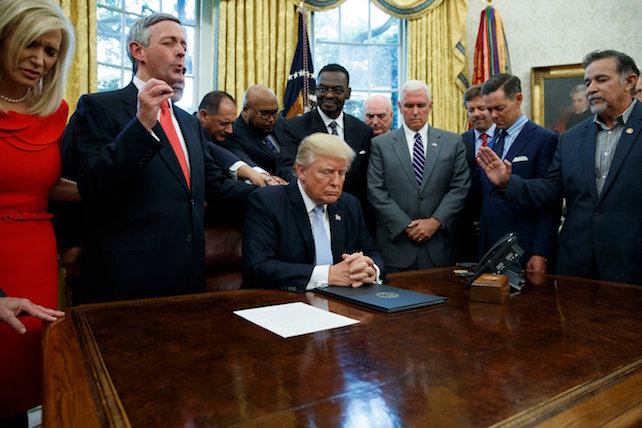Anytime I am asked to share our family story, I am equal parts excited and nervous. Our story is not a typical one, thought it started out very charmed. We easily could have been the stock photo for a new picture frame. I married my college sweetheart, a camp friend from high school. We both graduated from college, began our careers, got married, and moved to Dallas. We had a plan, and we were confident that our plan was surely God’s plan.
When “typical” no longer defined our family
After a few years of marriage, we started our family. We had a beautiful, healthy, strong-willed daughter. A couple of years after that, we had a handsome, healthy, and athletic boy. We continued moving forward with our plans and working hard at worldly success. In the fall of 2008, everything changed. I was pregnant with our third child. My pregnancy was normal, and there was nothing to be concerned about—until I went into labor five weeks early. From that moment on, our family has been anything but “typical.”
Libby was born, and we instantly knew that something was not right. Multiple doctors and nurses came in and out, having very hushed conversations. They took her out and did not bring her back. She was taken to the NICU with a number of concerns, the most significant being respiratory and cardiac. We were told that she had a very serious heart defect and would require surgery. She was struggling to transition from the womb to the world and was requiring assistance to breathe, eat, and rest. She had open heart surgery at 10 weeks old, and it was shortly after that surgery that we were told that Libby had a very rare chromosomal abnormality called Trisomy 16P.
We were told that the chances of her celebrating a second birthday were highly unlikely. We heard many things from doctors in the days following the diagnosis. We were told to “take her home and love her while you have her.” We were told “if you had not already repaired her heart, we would tell you not to bother—she won’t live long enough for the surgery to be worth it.” We were told to carefully consider our future family planning. Our heads and hearts were spinning.
One of the most encouraging things we heard was, “Who knows?” It was a comfort and relief when a very knowledgeable physician would admit that maybe he or she did not know what Libby’s future looked like. It was in these moments that I could feel the Lord nudging me and saying, “I know.”
Libby is now 12 years old. She is healthy and happy and truly a miracle from God. Life with Libby has been anything but easy. We have felt very much like navigators of a foreign territory. We have not found another family or even medical professional that has experience with Trisomy 16P. When Libby was diagnosed, there were 30 reported cases. Libby does not walk or talk; she has the cognitive ability of a nine-month-old baby.
Despite the difficulty and stress, we decided to continue to grow our family. We met with doctors and specialists. We were told that it was a scientific impossibility that we would have another child with Trisomy 16P. In October of 2011, after a very typical pregnancy, we welcomed Hannah Jane into our family. Hannah’s heart was healthy, she was not premature, she was breathing on her own; however, we both knew that something was atypical. We were told that she also has Trisomy 16P. We were shocked and devastated all over again. How could this be?
How our family experiences God’s faithfulness
Although the diagnosis was the same and the girls are technically genetic twins on paper, our feelings were different the second time. I never want to sugarcoat it—it was hard. We cried many tears. We questioned God’s plan. We felt angry. At the same time, we felt a peace and a calling. We have had hundreds of doctor appointments, surgeries, and hospitalizations. We have had such extreme mountain-top experiences, like when Hannah walked over 700 steps in her gait trainer a few weeks ago at school. We have also had dark, scary experiences in the valley. We have walked through nights in the ICU where we didn’t know if our girl would live. We have sat through surgeries that were long and life-threatening. We have flown in care flight helicopters and been transported by ambulances more times than I can count.
Here is what I have learned: God is God over the peaks and valleys. God was and is faithful every moment in between. He has been faithful to provide through his Word, his presence, and his people. I am grateful that God’s Word addresses fears and pain, anger and sadness. I am thankful that God does not turn away from our emotions. And I am grateful he continually speaks through his Word and his people.
For anyone walking a similar path, I encourage you to find a Bible-believing, Gospel-preaching church that will minister to you and your family. We have been been a part of three different churches—all who have loved us well and cared for our girls.
I would also encourage you to find parachurch ministries that minister to you and your entire family. Our very favorite event every year is attending Family Camp with Joni and Friends Texas. Joni Earekson Tada is a hero of ours and has established an unbelievably life-giving ministry that cares for families with disabilities.
And most importantly, I would encourage you to press in to God’s Word and discover what he says about suffering. John 16:33 has become my life verse, “I have said these things to you that, in me you may have peace. In the world you will have tribulation. But take heart; I have overcome the world” (ESV).
I fought the reality that our life is anything but typical for a while, but now I embrace the calling and blessing that we have been given. Our girls have taught us so much about God—his faithfulness, provision, and love for us. Our girls do not speak, but they communicate the gospel every single day. Our plan did not look like God’s plan. In 2013, his plan surprised us with welcoming our fifth child into our family. Campbell Grace is a healthy, active, extremely talkative seven-year-old now. His grace abounds, and his plan is always better—for his glory and our good.
This article originally appeared here.
















